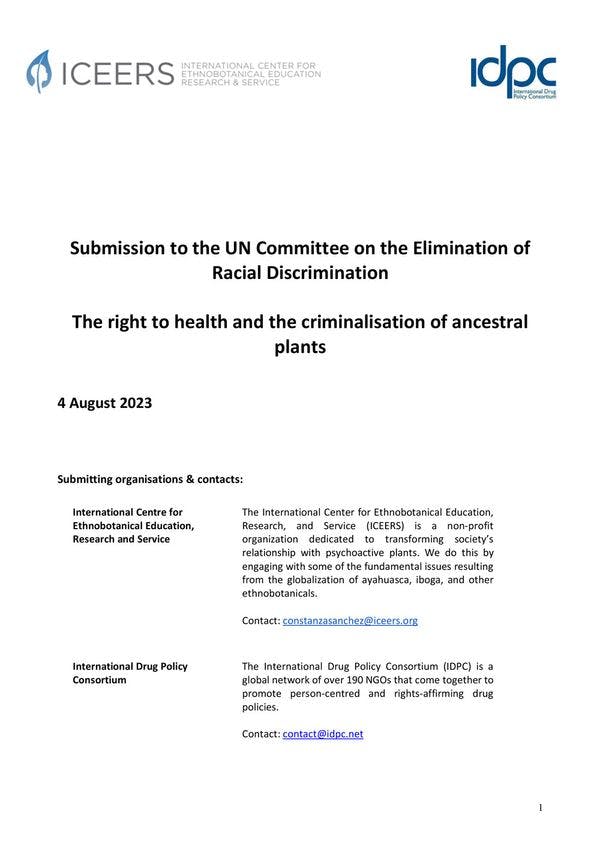Flickr Shawn Harquail, CC BY-NC 2.0
El derecho a la salud y la criminalización de las plantas ancestrales – Contribución al Comité CERD
El IDPC e ICEERS sostienen que el derecho de los pueblos indígenas a cultivar, utilizar, poseer, curar y viajar con sus plantas ancestrales debe consagrarse como parte de un derecho a la salud libre de discriminación racial. Más información, en inglés, está disponible abajo.
International human rights standards recognise the right of Indigenous peoples to their traditional medicines and health practices, and its centrality in the context of the right to health.
However, for decades drug control policies have sought to ban the cultivation, possession, and use of plants with psychoactive effects that are essential to Indigenous medicine and health. As a result, in certain countries people who grow, use, heal or travel with ancestral plants are still criminalised, and traditional medicine is endangered.
In this submission to the UN Committee on the Elimination of Racial Discrimination, ICEERS and IDPC provide feedback on the Committee's Draft General Recommendation on racial discrimination in the enjoyment of the right to health, and argue that the General Recommendations should enshrine the right of Indigenous Peoples to grow, use, possess, heal, and travel with their ancestral plants, as an essential part of a right to health free from racial discrimination.
